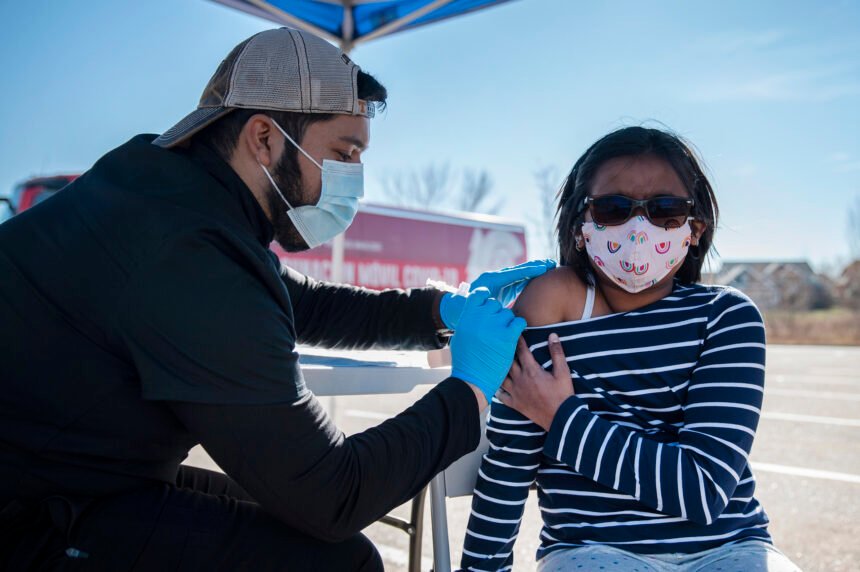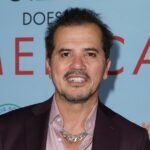Daley is a pediatrician with Kaiser Permanente in Denver, but he also does research through KP’s Institute for Health Research. Daley’s work primarily focuses on vaccines — their safety and patients’ hesitancy to get them — and it had long been a goal of his to serve on that obscure committee, known as the Advisory Committee on Immunization Practices, or ACIP.
But while Daley waited for his chance, the COVID-19 pandemic swept into the nation. By the time Daley took his seat in January 2021, ACIP had become one of the most closely watched medical bodies in the country, responsible for reviewing safety and efficacy data on COVID vaccines and making recommendations about whether and how they should be given.
Daley’s term ended in June, and we recently caught up with him to talk about his experience. The following conversation has been condensed and lightly edited for clarity.
The Colorado Sun: How are you feeling now that your term has ended? Happy? Relieved?
Matthew Daley: I’m really going to miss it, so I’m kind of sad, frankly. It was such an incredible experience. It was so much more work than anybody anticipated, so now I can put back all that energy into my day job, which is being a pediatric health services researcher and a pediatrician. Certainly I’m excited to get back to the rest of my day job, but I’m going to miss it because it was such an interesting experience.
Sun: You joined the committee at such a tumultuous time for the nation’s health systems. Why did this volunteer job appeal to you?
Daley: I was really grateful to have an opportunity to serve. Often, we have the energy, we have the expertise, but we don’t always have the opportunity. If you remember early in the pandemic, we were under lockdown, everything was shut down. And kids could get quite sick from COVID, but it was just a whole lot less common versus adults. So as a practicing pediatrician, the first couple months of the pandemic were pretty quiet for us. It felt so odd to be a doctor in a public health crisis who was not very busy. So I really was grateful for the opportunity to serve in this very unusual and unprecedented circumstance.
Sun: There was, of course, a lot of public attention on your work, and there was also speculation about political pressure on institutions like ACIP. How did that feel from the inside?
Daley: The ACIP was allowed to independently follow its process for decision-making. We were aware of these different power centers, but I was never getting late-night calls from any of those groups saying, “This is what we need you to do,” or, “This is the decision we need you to make.” We adhered to our process, the process served us well, and we had independence to make vaccine policy decision-making. And so that was very encouraging to find because I think there was always suspicion out there that somebody had their finger on the scale. But really, the ACIP had a process, followed it and was independent.
Sun: But there was still some pretty intense criticism from parts of the public. Did that ever become uncomfortable?
Daley: Our emails are up on the ACIP website, and people could easily find our emails. So we would get emails from the public. And some of those were pretty negative. Some of those were pretty positive, you know, just thanks for the work that you’re doing. And sometimes it was a high volume, but what was interesting there was that it was sort of copied and pasted. So you get a bunch of emails, but it was verbatim from another email that you’d get. So it seemed like a small number of people who had an organized campaign. But, given the circumstances, it was totally understandable and just fine.
Sun: How did you incorporate that feedback?
Daley: I think it was helpful to hear what people were worried about. And to the extent I could, I would try to address that in the public meetings. I remember a meeting where there were some public commenters who were really worried about COVID vaccine side effects. And I remember saying, “We hear how great your concerns are about COVID vaccine side effects. We do factor that into our decision-making.” We know that no vaccine is 100% safe or effective. And then here’s what data we have about safety. We have good safety surveillance systems in the U.S. The safety monitoring was some of the most intensive — probably the most intensive — safety monitoring ever in the history of modern science in terms of how many eyes were on safety. And so I was reassured by that.

Sun: There were so many consequential decisions during your time on ACIP, in terms of recommending use of COVID vaccines and really being one of the final checks before vaccines started going into arms. Are there any decisions you regret now?
Daley: I don’t have decisions that I wish I could have had back. But I think one thing that I as a pediatrician would have appreciated is if there had been vaccines available for kids sooner. That’s out of our hands because we can’t approve something until the vaccine manufacturer has submitted their data to the FDA (Food and Drug Administration), and the FDA has made a decision about it. And I think the burden (of disease) was so great in older adults that we lost sight of the fact that there were still, in absolute terms, some significant burden in pediatrics. More kids were dying from COVID than were dying from flu. It’s because the relative burden on kids was so much less than the burden on adults that there was so much more focus on adults and getting those individuals vaccinated.

Sun: COVID, obviously, drew the most attention during your time on the committee, but was there anything else that happened that didn’t receive as much public attention as you thought it deserved?
Daley: There’s a product called nirsevimab, and what nirsevimab is is it’s a long-acting monoclonal antibody that prevents RSV (respiratory syncytial virus) in infants. So that is not technically a vaccine because it’s an antibody and a vaccine is different. But it was being used in a very vaccine kind of way. And and so there was this debate about whether the ACIP should consider it and should vote on its use. As a practicing pediatrician, I’ve admitted more babies with RSV to the hospital than anything else I’ve seen in my 25 years of practice. It’s really common, and it can be really severe. And then here we’re given this opportunity to prevent a lot of that illness including hospitalizations and ICU admissions and deaths from RSV. I remember at a meeting where I sort of realized that if we handled it very differently, we’re probably not going to achieve the public health goals that we wanted and not achieve the disease prevention that we wanted.
Sun: So this is an injection that provides protection against RSV, but it doesn’t do it in the same way as a vaccine would by creating an immune response within your body to produce your own antibodies — it takes a shortcut by just giving you the antibodies to start. And the debate was whether to treat it like a vaccine?
Daley: It’s being used very vaccine-like, meaning it’s being given to everyone for prevention. And so I just remember saying we’ve achieved a lot in the national immunization program. And we have all of these systems in place to achieve high coverage for routine childhood vaccination. And because of that, we have prevented a tremendous amount of disease. And we have the same opportunity with nirsevimab, but we need to use all of our processes, all of our systems, to achieve the same thing with nirsevimab that we’ve achieved with infant vaccines. And after that, ACIP considered it.
Sun: What happened as a result?
Daley: Coverage was really high in the fall. This product is incredibly successful at preventing RSV hospitalizations in kids. There’s also an RSV vaccine for pregnant women that prevents their babies from getting RSV. And the combination of the two prevented just a huge amount of disease this last season. It sort of goes against the argument that there’s so much hesitancy out there that any new product is viewed with great skepticism because probably as many as 50% of infants in the U.S. in this past respiratory season, either they got nirsevimab or their mom got the RSV vaccine during pregnancy.

Sun: You mentioned hesitancy, which is a research specialty of yours. How do you view vaccine hesitancy, post-pandemic, and how do you address it now that vaccines have become a much more polarizing topic?
Daley: It’s a challenge that’s going to stay with us, I think, forever. I think we’ll always have some degree of hesitancy. When I look at hesitancy in pediatrics, I start with the principle that parents want what’s best for their kid. So I try as hard as I can not to get judgmental when parents make a different decision than what I recommend. They want what’s best for their kid. Then in the context of COVID vaccines, that’s a little different because people are making decisions for themselves and not for their kids. But it’s the same thing they want. They don’t want to get COVID, but they’re worried about the safety of COVID vaccines and they’re worried about maybe there’s some things that we don’t know about vaccines. So I understand that. But I think if we have transparency, integrity, public airing of the data, that helps. And then I think what also helps is to continue to study vaccine safety and study what people are really worried about.
Sun: When your term ended on ACIP did you get a parting gift?
Daley: No, I mean not really. What happened is that we had a three-day meeting, and on that Friday, they took a few moments to make comments about each of us and then they gave us a few minutes to make a comment. There were four of us who started right around Jan. 1, 2021. We had the most meetings that anybody ever had in the history of the ACIP. So they said thank you for your service. And that meant a lot.
Sun: OK, but not even a cake?
Daley: We didn’t have a cake. We had a lot of work to do.











